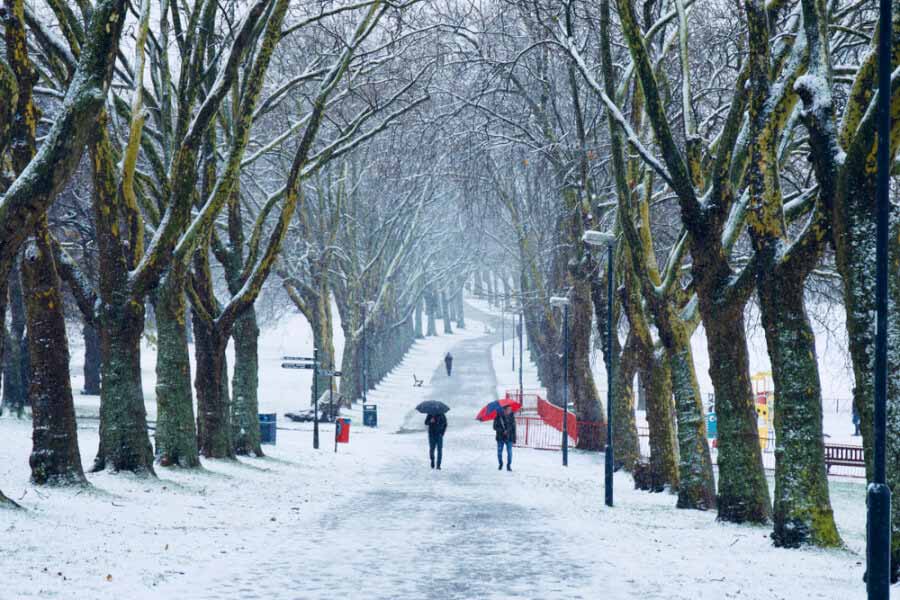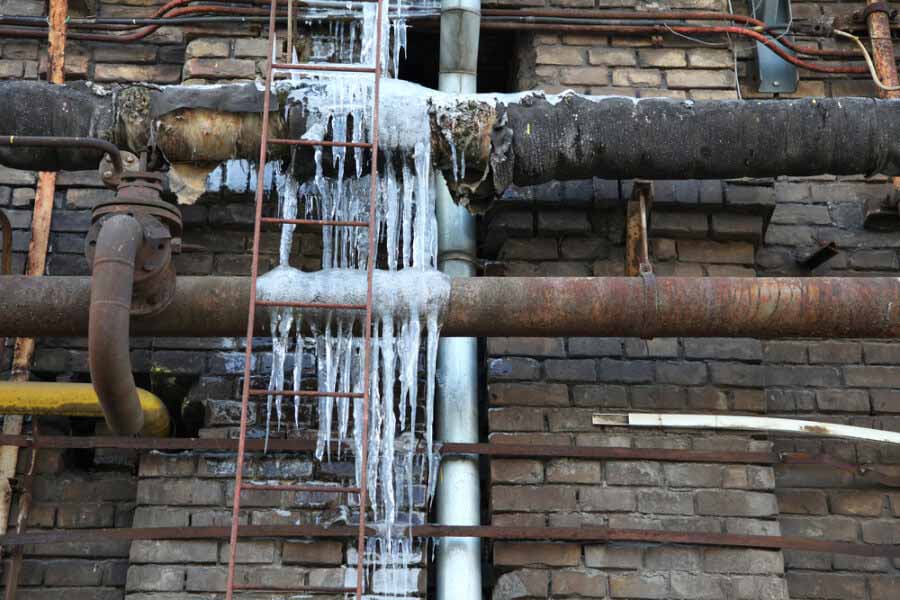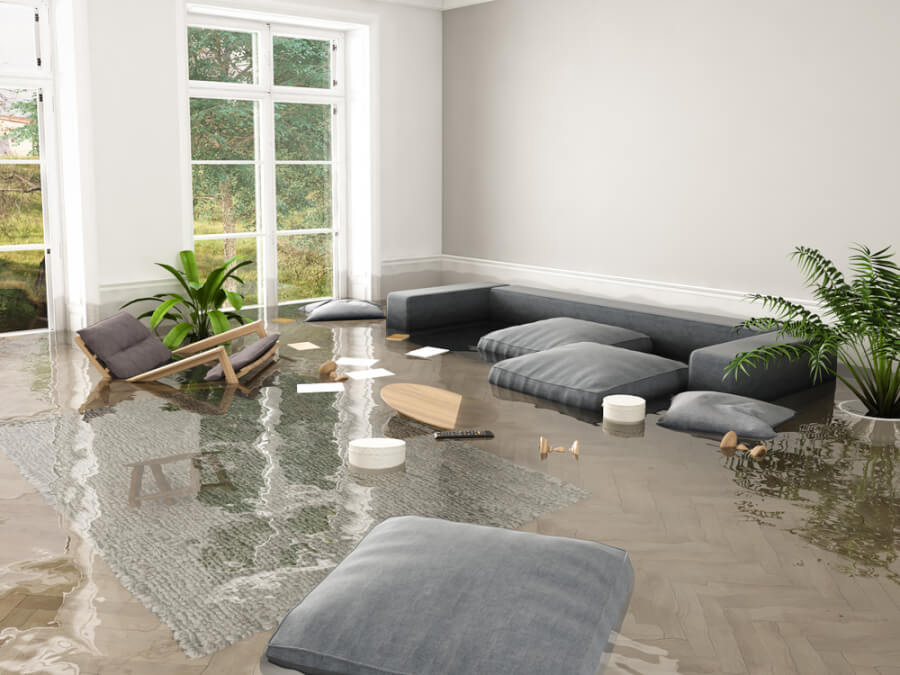The recent flurry of cold weather, dubbed the ‘Beast from the East’, took many people by surprise with its intensity and duration. With unexpected levels of snow, schools being shut and travel disruptions, landlords may have asked themselves what type of assistance and tenant resources they should be providing in the event of such extreme weather.
Clear guidelines, set out in writing, will help avoid any difficult conversations and problems occurring, and help maintain an excellent relationship with your tenants. According to research by emergency call-out company Homeserve, 250,000 tenants refused to pay rent due to the length of time urgent issues were resolved by their landlord. Around 23% of those surveyed said their landlord had failed to deal with the issue within a week time period, which clearly could cause frustrations.By using a property management service, any issues are dealt with on your behalf, especially important if you are based overseas, however if privately managed, there are a whole host of issues which could leave tenants unhappy and landlords facing unexpected costs.Homeserve’s research shows the most common emergency call out was for problems with central heating – especially key with the bouts of extreme cold weather we have experienced recently – and something which will not endear a landlord to tenants particularly. As Anita Mehra writes in our regular Landlord’s Advice Clinic series, heating systems should be left at 10c to prevent pipes freezing.
TOP TEN: TENANT EMERGENCY CALL OUTS

In the case of snow, of which London has seen record levels over the last few weeks, it should be clearly lined out in the tenancy agreement who is responsible for its removal. Untimely this can also help prevent any slip-and-fall accidents which could result in the landlord being held liable for any personal injuries sustained by either tenant or visitor to the property.Once the snow has been removed there will of course still be the issue of staying warm in such harsh weather, and as a private landlord it is almost a guarantee that it will be during the winter months with the temperatures at their lowest that you will receive a middle of the night phone call from a disgruntled tenant complaining that the boiler has broken. In the event of such an emergency, it is the landlord’s responsibility to ensure the maintenance of a property’s heating system.It is the landlord’s responsibility to ensure the system is checked annually by a Gas Safe registered engineer. The Gas Safety (Installation and Use) Regulations 1998 detail a landlord’s responsibilities with regards to ensuring gas appliances, fittings and chimneys/flues are safe. These requirements are also covered within our landord’s checklist also. Snow and heating issues aside, there is also the possible problem of frozen pipes during the winter months, and every landlord dreads the phone call telling them that a frozen pipe has broken or burst. As with heating, it is the landlord’s responsibility to ensure piping is maintained and repaired if necessary, and in this case, it is wiser to pre-empt a problem than react to it. Therefore, in the Autumn before the first real cold spell hits, it would be prudent to issue reminders to your tenants to leave the heating system on if they plan on being away for several days over the festive and Winter periods. Also, scheduling regular checks will help ensure all piping is in good condition and less likely to have any problems. Simran Prasad, Director of Property Management, shares more on how to prepare your property for winter and avoid problems.Roofs are always a concern when strong winds hit and we would advise that you check them twice a year, for loose and missing slates in particular. Minor repairs are always worth doing at the time, and can save further expense down the line. Similarly, loft insulation should be checked and monitored (it can be displaced over time) which can help minimise heating bills for tenants – always popular!
Snow and heating issues aside, there is also the possible problem of frozen pipes during the winter months, and every landlord dreads the phone call telling them that a frozen pipe has broken or burst. As with heating, it is the landlord’s responsibility to ensure piping is maintained and repaired if necessary, and in this case, it is wiser to pre-empt a problem than react to it. Therefore, in the Autumn before the first real cold spell hits, it would be prudent to issue reminders to your tenants to leave the heating system on if they plan on being away for several days over the festive and Winter periods. Also, scheduling regular checks will help ensure all piping is in good condition and less likely to have any problems. Simran Prasad, Director of Property Management, shares more on how to prepare your property for winter and avoid problems.Roofs are always a concern when strong winds hit and we would advise that you check them twice a year, for loose and missing slates in particular. Minor repairs are always worth doing at the time, and can save further expense down the line. Similarly, loft insulation should be checked and monitored (it can be displaced over time) which can help minimise heating bills for tenants – always popular! Still continuing with the issue of heating, ideally, tenants would bleed the radiators within the property at regular intervals to ensure a good flow of heat, in addition to an annual service.If the property is fitted with a Smart Home heating device, you should ensure there is a back-up system if internet connectivity fails for any reason.Moving outside the property, gutters may get clogged with leaves throughout the Autumn period, leaving the risk of water backing up and freezing when a cold spell hits. If this occurs, there is the potential of water overflowing and external pipes breaking. Again, a costly problem but avoidable with scheduled maintenance.
Still continuing with the issue of heating, ideally, tenants would bleed the radiators within the property at regular intervals to ensure a good flow of heat, in addition to an annual service.If the property is fitted with a Smart Home heating device, you should ensure there is a back-up system if internet connectivity fails for any reason.Moving outside the property, gutters may get clogged with leaves throughout the Autumn period, leaving the risk of water backing up and freezing when a cold spell hits. If this occurs, there is the potential of water overflowing and external pipes breaking. Again, a costly problem but avoidable with scheduled maintenance.
 In the extreme example of your property being flooded, and the tenant unable to live in the property, you should be aware that the tenant is not liable to pay rent. Your insurance should detail whether loss of rent is covered under ‘Act of God’ terms. You should also check whether alternative accommodation could be provided to your tenant under this insurance cover.Our clients rely on us to liaise and communicate with tenants in the case of any issues, but if you are maintaining your buy to let property yourself, we would highly recommend keeping in regular communication with your tenant so they are aware of any potential problems and both parties are aware of their responsibilities, proactive upkeep and damage limitation.If you would like any further advice about maintenance, property refurbishment including tax allowances, and property management services, please contact us or take a look at our client testimonials.
In the extreme example of your property being flooded, and the tenant unable to live in the property, you should be aware that the tenant is not liable to pay rent. Your insurance should detail whether loss of rent is covered under ‘Act of God’ terms. You should also check whether alternative accommodation could be provided to your tenant under this insurance cover.Our clients rely on us to liaise and communicate with tenants in the case of any issues, but if you are maintaining your buy to let property yourself, we would highly recommend keeping in regular communication with your tenant so they are aware of any potential problems and both parties are aware of their responsibilities, proactive upkeep and damage limitation.If you would like any further advice about maintenance, property refurbishment including tax allowances, and property management services, please contact us or take a look at our client testimonials.
International offices

















 Snow and heating issues aside, there is also the possible problem of frozen pipes during the winter months, and every landlord dreads the phone call telling them that a frozen pipe has broken or burst. As with heating, it is the landlord’s responsibility to ensure piping is maintained and repaired if necessary, and in this case, it is wiser to pre-empt a problem than react to it. Therefore, in the Autumn before the first real cold spell hits, it would be prudent to issue reminders to your tenants to leave the heating system on if they plan on being away for several days over the festive and Winter periods. Also, scheduling regular checks will help ensure all piping is in good condition and less likely to have any problems. Simran Prasad, Director of Property Management, shares more on how to
Snow and heating issues aside, there is also the possible problem of frozen pipes during the winter months, and every landlord dreads the phone call telling them that a frozen pipe has broken or burst. As with heating, it is the landlord’s responsibility to ensure piping is maintained and repaired if necessary, and in this case, it is wiser to pre-empt a problem than react to it. Therefore, in the Autumn before the first real cold spell hits, it would be prudent to issue reminders to your tenants to leave the heating system on if they plan on being away for several days over the festive and Winter periods. Also, scheduling regular checks will help ensure all piping is in good condition and less likely to have any problems. Simran Prasad, Director of Property Management, shares more on how to  Still continuing with the issue of heating, ideally, tenants would bleed the radiators within the property at regular intervals to ensure a good flow of heat, in addition to an annual service.If the property is fitted with a Smart Home heating device, you should ensure there is a back-up system if internet connectivity fails for any reason.Moving outside the property, gutters may get clogged with leaves throughout the Autumn period, leaving the risk of water backing up and freezing when a cold spell hits. If this occurs, there is the potential of water overflowing and external pipes breaking. Again, a costly problem but avoidable with scheduled maintenance.
Still continuing with the issue of heating, ideally, tenants would bleed the radiators within the property at regular intervals to ensure a good flow of heat, in addition to an annual service.If the property is fitted with a Smart Home heating device, you should ensure there is a back-up system if internet connectivity fails for any reason.Moving outside the property, gutters may get clogged with leaves throughout the Autumn period, leaving the risk of water backing up and freezing when a cold spell hits. If this occurs, there is the potential of water overflowing and external pipes breaking. Again, a costly problem but avoidable with scheduled maintenance. In the extreme example of your
In the extreme example of your